New Global Benchmark Ranks Top Container Ports Worldwide

Maritime transport carries close to 90 percent of global trade by volume, and container ports alone handle more than 80 percent of non-bulk merchandise. Today, these ports are undergoing a profound transformation, driven by rising trade flows, rapid advances in technology, and mounting pressure to meet climate targets.Against this backdrop, DNV and Menon Economics have introduced the industry’s first global container port ranking. The LCP report benchmarks 160 ports against 35 indicators grouped into five pillars: enablers…
Lloyd’s Register Shares Updated Guidance to Support Fuel Cell Integration

Lloyd’s Register (LR) has released updated guidance for the installation of fuel cells on ships, offering shipowners and shipbuilders a comprehensive framework to support the safe deployment of alternative power systems. The July 2025 edition of Guidance Notes on the Installation of Fuel Cells on Ships incorporates recent regulatory updates and technical developments related to fuel cell technology in the maritime sector. Fuel cells powered by hydrogen or ammonia are viewed as options for achieving zero or near net-zero tank-to-wake emissions.
DNV: Green Fleet Readiness Surges Ahead of Fuel Supply
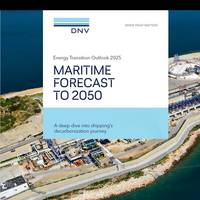
By 2030, the alternative-fueled fleet will be able to burn up to 50 million tons of oil equivalent (Mtoe) of low-greenhouse gas (GHG) fuels annually, double the estimated volume needed to meet the International Maritime Organization’s (IMO) 2030 emissions target. Yet today, actual consumption of low-GHG fuels remains at just 1 Mtoe. This widening gap between capacity and use highlights both the scale of industry commitment and the urgent need for fuel producers and infrastructure…
Inmarsat Maritime Report Reveals Distress Calls at Sea Remain High
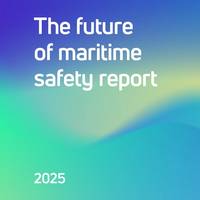
The 2025 edition of the Future of Maritime Safety Report from Inmarsat Maritime, a Viasat company, reveals that distress calls at sea remain high, underlining the vital role of human factors in safe shipping.According to the report, the number of Global Maritime Distress and Safety System (GMDSS) distress calls registered on the Inmarsat Maritime network increased from 788 in 2023 to 801 in 2024, broadly in line with the 2018-2023 annual average of around 800 calls.The report points to a turbulent year for international shipping…
ABS Report Explores Emerging Maritime Battery Technologies
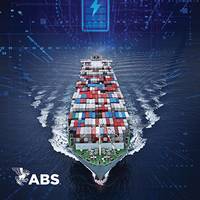
The latest advances in battery technologies have the potential to not only support direct electrification and the integration of alternative fuels but also offer pathways to enhance operational efficiency and reduce fuel costs, according to the latest analysis from ABS.The report, Emerging Battery Technologies in the Maritime Industry Volume II expands understanding of the inherent safety risks associated with emerging battery systems, particularly thermal runaway (TR) and gas…
DNV, RSI Complete Study on Decarbonizing the Short Sea Dry Bulk Fleet

Amid increasing pressure on shipping to achieve the IMO 2050 decarbonization targets, the Responsible Shipping Initiative (RSI) and DNV have completed a new study: "Decarbonization of the short sea dry bulk fleet", co-funded by the Swedish Transport Administration. The study finds that while Swedish cargo owners and charterers are committed to greener practices, a lack of regulatory and economic incentives for smaller tonnage is hindering their progress.Europe’s short sea general cargo fleet is ageing rapidly…
UK Transport Sector Falling Behind on Gender Equity

A new national report from Women in Transport warns that the UK's transport industry is not only failing to make progress on gender equity, but it is now actively losing ground. The 2025 Women in Transport Equity Index, based on the organization's second sector-wide survey, reveals that key indicators of inclusion, pay equality and leadership progression have stagnated or worsened since the inaugural Index in 2023.The findings paint a worrying picture for a sector that is not only vital to national mobility but also a cornerstone of the UK economy.
Lloyd's Register: Considered Approach to Protecting Marine Biodiversity Offers Competitive Advantage
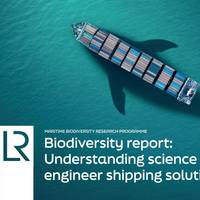
Proactive measures supporting marine biodiversity create operational efficiencies and attract commercial incentives, according to a new Lloyd’s Register (LR) report, launched June 11 at the UN Ocean Conference 2025 in Nice, France.The Shipping Biodiversity Report offers practical, science-based guidance and potential actions for shipowners, operators, regulators and policymakers seeking to protect marine biodiversity while maintaining efficient operations.The report connects environmental impact with financial and reputational exposure.
Ocean Workers Must Be Recognized as Frontline Group in the Climate Crisis
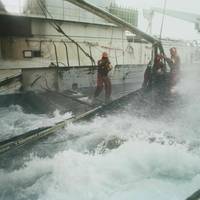
A global safety charity is calling for ocean workers to be recognized as a frontline group when it comes to the impacts of climate change.According to Lloyd’s Register Foundation’s latest World Risk Poll Focus On report, Risk perceptions and experiences of ocean workers, ocean workers are among one of the most vulnerable demographics in the face of climate change, with 80% of them saying they are worried about being seriously harmed by severe weather.The report is based on new analysis of data from the 2024 World Risk Poll…
USTRANSCOM Report: Impact of Dredging Limitations on U.S. Strategic Seaports

The U.S. Senate Committee on Armed Services, through the National Defense Authorization Act (NDAA) for Fiscal Year 2025, tasked the U.S. Transportation Command (USTRANSCOM) with assessing how reduced dredging capacity may have impacted designated strategic seaports. In response, USTRANSCOM submitted a report titled Dredging and the Strategic Seaport Program, which has recently been declassified and made available to the public. The report outlines operational impacts, identifies root causes of dredging challenges…
New Lloyd’s Register Report Outlines Upcoming Regulatory Changes
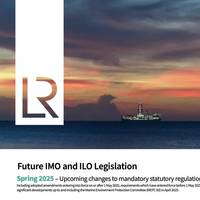
A new Lloyd's Register report outlines the upcoming changes to mandatory statutory regulations and instruments. A comprehensive suite of new International Maritime Organization (IMO) and International Labour Organization (ILO) regulations come into force over the next few months, reshaping environmental standards, safety protocols, and seafarer welfare. The changes outlined in Lloyd’s Register’s “Future IMO and ILO Legislation – Spring 2025” report highlight upcoming updates to mandatory statutory regulations and instruments, with effective dates on or after May 1, 2025.
ABS Publishes Safety Insights for Ammonia as a Marine Fuel
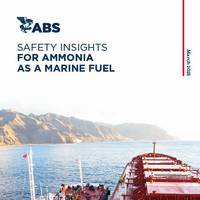
How does ammonia behave when it leaks in an engine room? How does a cloud of escaped ammonia disperse during bunkering operations? These and many other critical safety questions that must be understood if ammonia is to become widely adopted as a marine fuel are addressed in ABS' latest research.Safety Insights for Ammonia as a Marine Fuel brings together the findings of advanced ABS research into the performance of ammonia on board.ABS performed computational fluid dynamics (CFD)…
Bureau Veritas Calls For Standardized Safety Regulations For Electrification Technologies
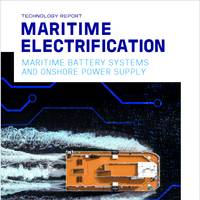
Bureau Veritas Marine & Offshore (BV), a leader in testing, inspection, and certification, has called for greater clarity regarding standardized safety regulations that will advance the development of maritime electrification technologies, following the publication of a new technology report, Maritime Electrification: Maritime Battery Systems and Onshore Power Supply. The report explores how electrification technologies—specifically Energy Storage Systems (ESS) and Onshore Power…
ABS Publishes Dual-Fuel Propulsion Advisory Report
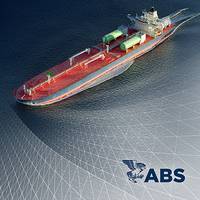
ABS has published the Dual-Fuel Solutions for Newbuild Vessels, a report that examines dual-fuel propulsion options focused on hydrocarbon-based fuel coupled with liquefied natural gas (LNG), methanol and ammonia.Choosing the right dual-fuel propulsion system for a new vessel requires a balance of regulatory compliance, infrastructure readiness, safety considerations, operational flexibility and long-term economic viability, the report emphasizes. “Shipowners are looking at all fuels…
New Report Outlines Roadmap to Tackle Seafarer Shortages
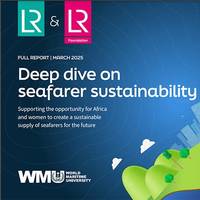
A new report published by Lloyd's Register Foundation highlights opportunities to make the number of seafarers more sustainable by investing in Africa's emerging talent and supporting women in maritime roles.The report, "Deep dive on seafarer sustainability: Supporting the opportunity for Africa and women to create a sustainable supply of seafarers for the future," was carried out by the World Maritime University. The report examines entry barriers for careers in maritime, many…
Wind Propulsion Key to Cut Shipping Costs and Carbon, According to Report
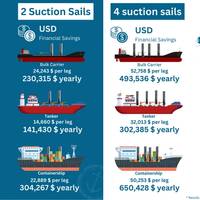
As the International Maritime Organization (IMO) prepares to meet in London from March 31 to April 11 to finalize measures for its greenhouse gas (GHG) strategy, a new report by marine NGO Seas At Risk shows the economic and climate benefits of using wind-assisted propulsion to power global shipping.The ‘Wind First!’ study shows that retrofitting sails on large, existing vessels can save close to half a million U.S. dollars on fuel costs and reduce fuel consumption and carbon emissions by up to 12%…
MTF Releases Safety Recommendations for Ammonia-Fueled Ships
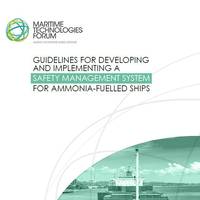
The Maritime Technologies Forum (MTF) released a report today providing recommendations on how to develop and implement a Safety Management System (SMS) for ammonia-fueled ships.Recognizing the industry's forecasts on the uptake of future fuels with low to zero carbon emissions, ammonia has emerged as a frontrunner. However, it presents new risks such as toxicity and corrosiveness.
New Report Set to Tackle Critical Issue for EV Transportation via PCTC Vessels
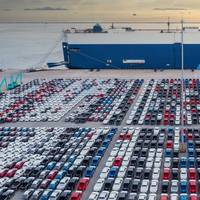
The Maritime Technologies Forum (MTF) has published a comprehensive report, aimed at addressing the critical issue of transporting electric vehicles (EVs) on Pure Car and Truck Carrier (PCTC) vessels.The report, titled Safe Carriage of Electric Vehicles, offers detailed insights into the characteristics of EV fires and provides a framework for considerations necessary to supplement the safe carriage of EVs.The report further highlights the necessity of measures such as early detection…









